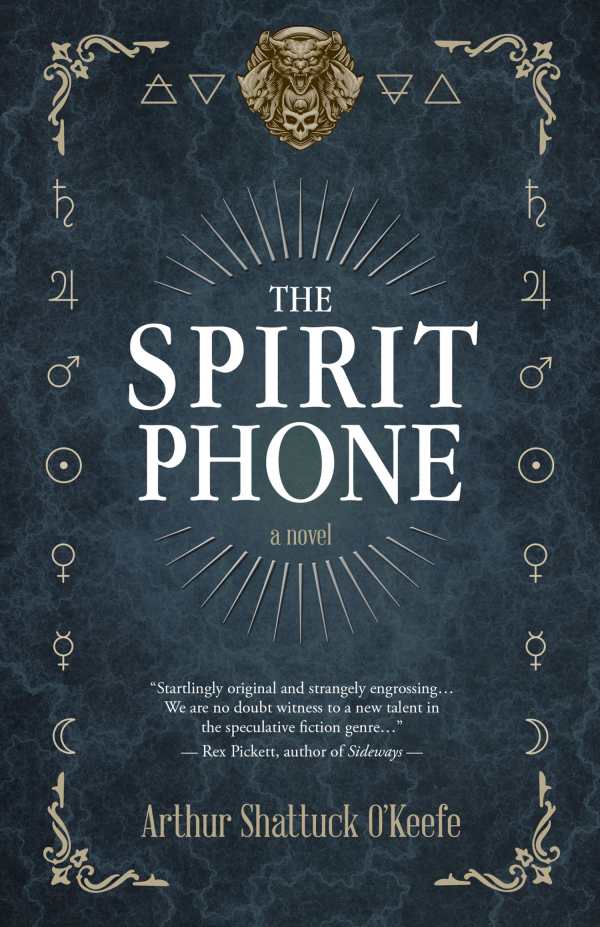The Spirit Phone
In Arthur Shattuck O’Keefe’s mystery novel The Spirit Phone, historical figures try to prevent an otherworldly monster from entering the human world.
When Aleister Crowley teleports into the hotel suite of Nikola Tesla, it is a surprise to both of them. Crowley knows it must be for some purpose, so he convinces Tesla to join him in searching for meaning to the evil presence that he has recently become aware of. They learn that Thomas Edison invented a spirit phone to communicate with the deceased, and they decide that the timing of such a device, which blends Tesla’s engineering skills with Crowley’s esoteric knowledge, cannot be a coincidence. This clue starts them down a path of discovery that takes them through time and across dimensions in what turns out to be a quest to save humanity.
In addition to Tesla, Crowley, and Edison, historical figures including medium Edgar Cayce, alchemist John Dee, and architect Stanford White appear in the book. These details, combined with descriptions of the hotel that Tesla lives in, the locations that he and Crowley visit, the labs that Edison and Tesla work out of, and the people whom they interact with build a solid, recognizable foundation for the outlandish plot. Its turns blend spiritualism, adventure, mystery, science, technology, fantasy, and occultism, but in this wild mix, the characters always find a way to explain what is happening.
The story is filled with twists that are impossible to predict, but for those who can suspend all disbelief this unpredictability is a delight. As Crowley and Tesla race across the sky in an airship in search of a colony of clones while simultaneously fighting off astral attacks by an unseen demon, there is nothing to do but enjoy the ride.
The Spirit Phone is an inventive novel that’s moved by mysteries and magic.
Reviewed by
Catherine Thureson
Disclosure: This article is not an endorsement, but a review. The publisher of this book provided free copies of the book to have their book reviewed by a professional reviewer. No fee was paid by the publisher for this review. Foreword Reviews only recommends books that we love. Foreword Magazine, Inc. is disclosing this in accordance with the Federal Trade Commission’s 16 CFR, Part 255.

